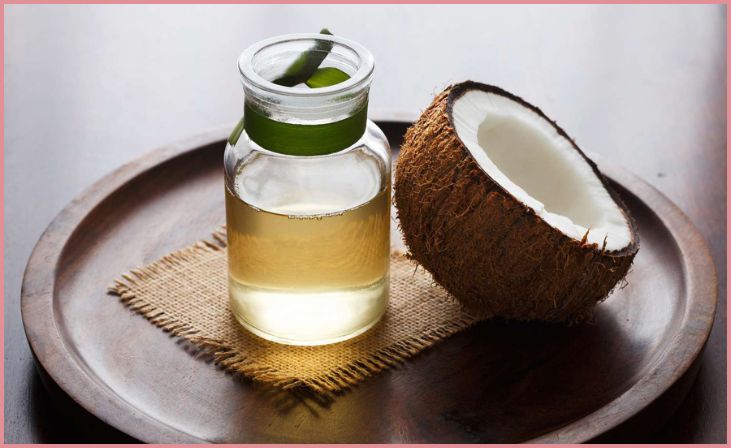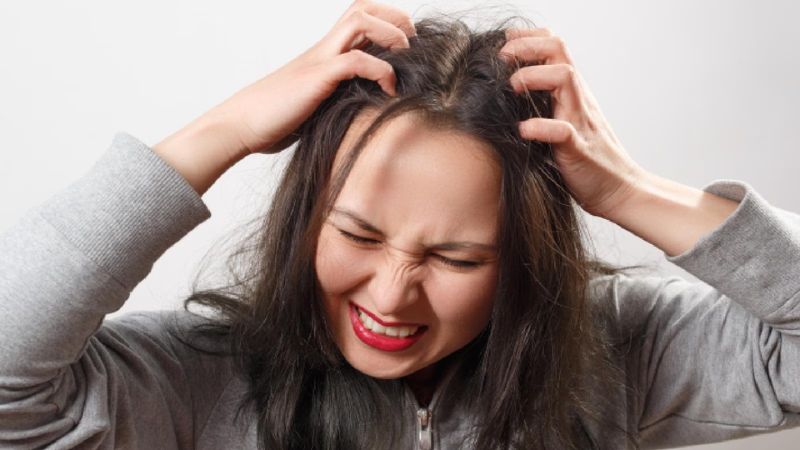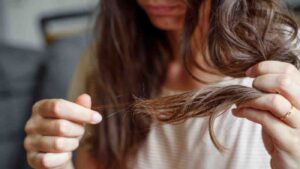Dealing with a dry scalp can be both uncomfortable and distressing, impacting not only your physical comfort but also your confidence. The constant itching, flaking, and irritation can disrupt your daily life and affect your overall well-being. However, finding relief is possible through natural remedies that provide gentle yet effective solutions.
In this guide, we’ll explore seven natural remedies specifically tailored to alleviate dry scalp issues, offering insights and tips to help you restore moisture, soothe irritation, and regain control over your scalp health. Say goodbye to discomfort and hello to a healthier, happier scalp with these simple yet powerful solutions.
Natural Remedies for Dry Scalp Relief
1. Coconut Oil Treatment

Coconut oil is hailed as a multipurpose remedy, cherished for its profound moisturizing capabilities. When gently massaged into the scalp and allowed to sit for a minimum of 30 minutes before rinsing, warm coconut oil works wonders. Its deeply penetrating properties not only hydrate the scalp but also alleviate dryness and irritation, fostering an environment conducive to robust hair growth.
The application of coconut oil offers a soothing experience, providing relief from the discomfort associated with dry scalp conditions. Consistent use of this natural remedy can lead to noticeable improvements in scalp health, resulting in revitalized and luscious locks that exude radiance and vitality.
2. Aloe Vera Gel
Famed for its extraordinary soothing and hydrating attributes, aloe vera gel emerges as a premier solution for addressing dry scalp concerns. By directly applying fresh aloe vera gel to the scalp and leaving it on for approximately 20-30 minutes, individuals can experience remarkable benefits. The potent anti-inflammatory properties of aloe vera work tirelessly to alleviate itching and redness, offering instant respite from discomfort.
As a natural moisturizer, aloe vera gel deeply nourishes the scalp, promoting optimal hydration and revitalization. Incorporating this botanical wonder into your hair care routine can lead to a profound transformation, leaving your scalp feeling rejuvenated and your hair looking vibrant and healthy.
Also Read : 8 Essential Oils for Stimulating Hair Growth
3. Apple Cider Vinegar Rinse
Apple cider vinegar serves as a natural remedy renowned for its ability to restore the scalp’s pH balance while effectively eliminating buildup and impurities. By diluting apple cider vinegar with water and using it as a final rinse after shampooing, individuals can experience a multitude of benefits. The acidic nature of apple cider vinegar aids in exfoliating the scalp, unclogging pores, and alleviating dryness, resulting in a revitalized and balanced scalp environment.
Additionally, this vinegar rinse helps to remove residue from hair products, leaving the scalp feeling refreshed and rejuvenated. Incorporating an apple cider vinegar rinse into your hair care regimen can promote scalp health and contribute to the overall appearance and manageability of your hair.
4. Tea Tree Oil Treatment
Tea tree oil is celebrated for its potent antimicrobial and anti-inflammatory properties, making it an invaluable asset in combating dry scalp and dandruff. By mixing a few drops of tea tree oil with a carrier oil such as coconut or olive oil and gently massaging it into the scalp, individuals can harness its remarkable benefits.
Leaving the oil on overnight allows for maximum absorption and efficacy. Tea tree oil effectively targets bacteria and fungi on the scalp, reducing inflammation and soothing irritation. Regular use of this natural remedy can lead to a significant improvement in scalp health, resulting in a more comfortable and nourished scalp environment.
5. Jojoba Oil Massage
Jojoba oil is renowned for its striking resemblance to the natural oils produced by the scalp, making it an exceptional moisturizer for dry scalp conditions. When gently massaged into the scalp, jojoba oil works to enhance hydration and reduce flakiness without leaving behind a greasy residue. Its lightweight texture ensures quick absorption, allowing for immediate relief from dryness and discomfort.
Jojoba oil also helps to regulate sebum production, balancing oil levels on the scalp and promoting overall scalp health. Incorporating regular scalp massages with jojoba oil into your hair care routine can lead to softer, smoother hair and a healthier scalp.
6. Avocado Hair Mask
Avocado is prized for its rich content of essential fatty acids and vitamins, making it an ideal ingredient for hydrating and nourishing the scalp and hair. By mashing ripe avocado and mixing it with honey or olive oil, individuals can create a luxurious hair mask that deeply penetrates the scalp and hair shaft.
Applying the mask to the scalp and hair and allowing it to sit for 30 minutes before rinsing thoroughly provides intensive hydration and nutrition. Avocado’s moisturizing properties help to alleviate dryness and promote scalp health, leaving the hair feeling soft, silky, and rejuvenated.
Also Read : 9 Anti-Aging Skincare Secrets Revealed
7. Scalp Massage with Olive Oil

Olive oil serves as a natural emollient that effectively moisturizes the scalp while promoting blood circulation. By warming olive oil and gently massaging it into the scalp using circular motions, individuals can experience a deeply relaxing and nourishing treatment.
This scalp massage not only hydrates the scalp but also helps to relieve stress and tension, promoting overall scalp health and well-being. Olive oil’s rich content of antioxidants and vitamins nourishes the scalp, leaving it feeling revitalized and rejuvenated. Regular scalp massages with olive oil can lead to improved scalp health, reduced dryness and flakiness, and stronger, more resilient hair.
Conclusion
In conclusion, addressing dry scalp issues requires patience, consistency, and a holistic approach. By incorporating natural remedies into your hair care routine, you can effectively alleviate discomfort and promote scalp health. From coconut oil treatments to tea tree oil massages, the options are plentiful and cater to various preferences and needs. Remember to listen to your scalp’s signals, adjust your regimen as necessary, and prioritize hydration and nourishment.
Additionally, practicing good hair care habits, such as using gentle products and avoiding excessive heat styling, can further support scalp health. With dedication and the right strategies, you can bid farewell to dry scalp woes and embrace a revitalized, balanced scalp for healthier, happier hair days ahead.
Frequently Asked Questions
How often should I use these remedies?
The frequency of using these remedies depends on the severity of your dry scalp and your scalp’s sensitivity. It’s recommended to start with once or twice a week and adjust as needed based on your scalp’s response.
Can I combine multiple remedies for better results?
Yes, you can experiment with combining different remedies to tailor a solution that works best for your scalp. However, it’s essential to patch test new combinations to ensure compatibility and avoid adverse reactions.
Are these remedies suitable for all hair types?
While these remedies are generally safe for most hair types, individuals with specific allergies or sensitivities should exercise caution and perform a patch test before applying them to the scalp.



